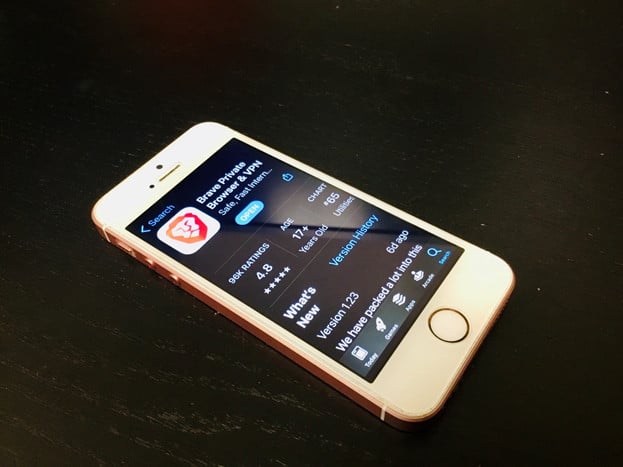Need Reliable Computer Services: Call (352) 224-3866
A Brave (Browser) New World #FBF
Written by Benjamin Syn on June 11, 2021 Under browsers
Originally published February 24, 2021
Arguably the most utilized software on our computers, tablets, and smartphones are our browsers. These fantastic inventions allow us to search the internet with Google, shop the latest deals from Amazon, stream 4K videos from Netflix, be social on Twitter, and so much more! If there is one app that I couldn't live without, it would be my browser. But with so many browsers on the market, which one is right for you?
Chrome and Firefox and Edge (Oh My!)
Unquestionably, Google Chrome is the unquestionable champion with over 60% of the worldwide browser market share! (Although profoundly impressive, it pales compared to the 96% market share that Microsoft's Internet Explorer held back in 2002.) Chrome has become so powerful that Microsoft completely retooled its signature Edge browser based on the same open-source Google-sponsored Chromium Project. Here the difference is that Google centers around retooling its Chrome browser to sync with Google's services while Microsoft designed Edge to sync with Microsoft's services.
And, of course, both Google and Microsoft add in all those data-gathering mechanisms so that they can better tailor their ads specifically to you.
Home of the Brave
When I first started at NexgenTec, my colleagues told me about the Brave browser. At the time, I was using Mozilla's Firefox because I loved using open-source software to avoid sharing all my business with corporations like Google, Microsoft, and Apple. However, I voiced frustration that when I use Firefox on my iOS devices, several sites told me that my browser was out of date—despite being obsessed about always keeping all my software up to date (hence why I went into IT). Marcel Manning suggested that I try out Brave.
Launched in 2016, Brave was co-created by the inventor of JavaScript and the co-founder of Mozilla. Like Chrome (and Edge), Brave is based on Chromium and is compatible with much of the Chrome Web Store. However, it's cleaner and even three to six times faster than Chrome, Mozilla's Firefox, and other browsers from its built-in adblocking!
One of the biggest criticisms of browsing the internet is the seeming ubiquity of advertisements, enveloping our screens and wasting our time. Experts advocate that people's attention is a scarce resource that many of us will diligently guard with apps and other technology. As such, we turned to extensions like AdBlock and Ghostery to purge these annoying ads. With Brave, our browser works perfectly, blocking ads automatically from the start.[1]
But it's not just the ads that we see that hurt us. Many tech giants, especially Google, have spearheaded an entire industry that uses tracking and third-party cookies that follow us around the internet, learning how to best sell to our interests. Brave blocks these by default. If all of these privacy and security features break a website, then these Shield can be lowered—a seemingly overt reference to Star Trek.
However, for those of us who want more internet security, not less, Brave has Tor built-in. Created in 1995 by the United States Naval Research Lab, TOR (an acronym for The Onion Routing) sends and encrypts internet traffic through three different relays all over the world, making it profoundly difficult to track. To get the benefits of being anonymous online, we can download the TOR browser or open a "New private window with Tor" in Brave.
Alright, so most of us don't need TOR-level of privacy all the time. Moreover, we'd also prefer not to give up so much of our internet speed for that security. (It takes quite a while to bounce our internet traffic all over the globe.) That said, how awesome is having this option. And when we don't use this Private TOR window, Brave is blazingly fast, a statistic confirmed by Jetstream 2.0. And Brave has been an exceptional browser on each of the operating systems that I use: iOS, Windows, macOS, and Linux. (I hear it's supposed to be great on Android as well.)
Now What?
So what's the best browser for you? Each of the top computer company's flagship browsers dominates the industry, from Google Chrome to Apple Safari and Microsoft Edge. These browsers are built into the operating system and are nearly impossible to remove. In Microsoft's case, it has two of these as—in addition to Edge—it still maintains and supports its legacy browser Internet Explorer. However, for those who don't want to have these computer giants knowing our browsing history, there's always the non-profit Mozilla's Firefox. Furthermore, extension company Ghostery and antimalware company Avast have got into the game using their privacy-focused ethos to craft browsers of their own.
But if you're asking me, be bold: Try Brave.

Figure 1: Brave works on desktops, tablets, and even smartphones.
[1] And for those of us who are willing to give up a little bit of our attention, the completely optional Brave Rewards will payout 70% of the ad revenue in the Basic Attention Token crypto currency—meaning that you'll get paid to surf the web!
Call Us: (352) 224-3866